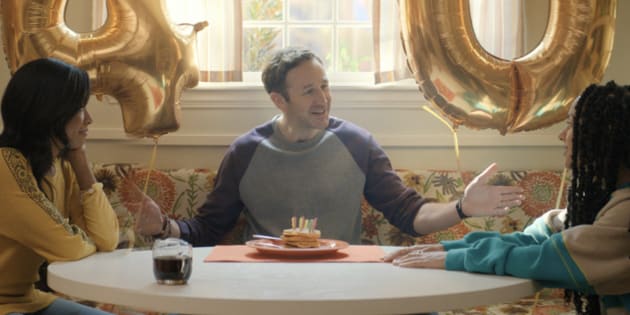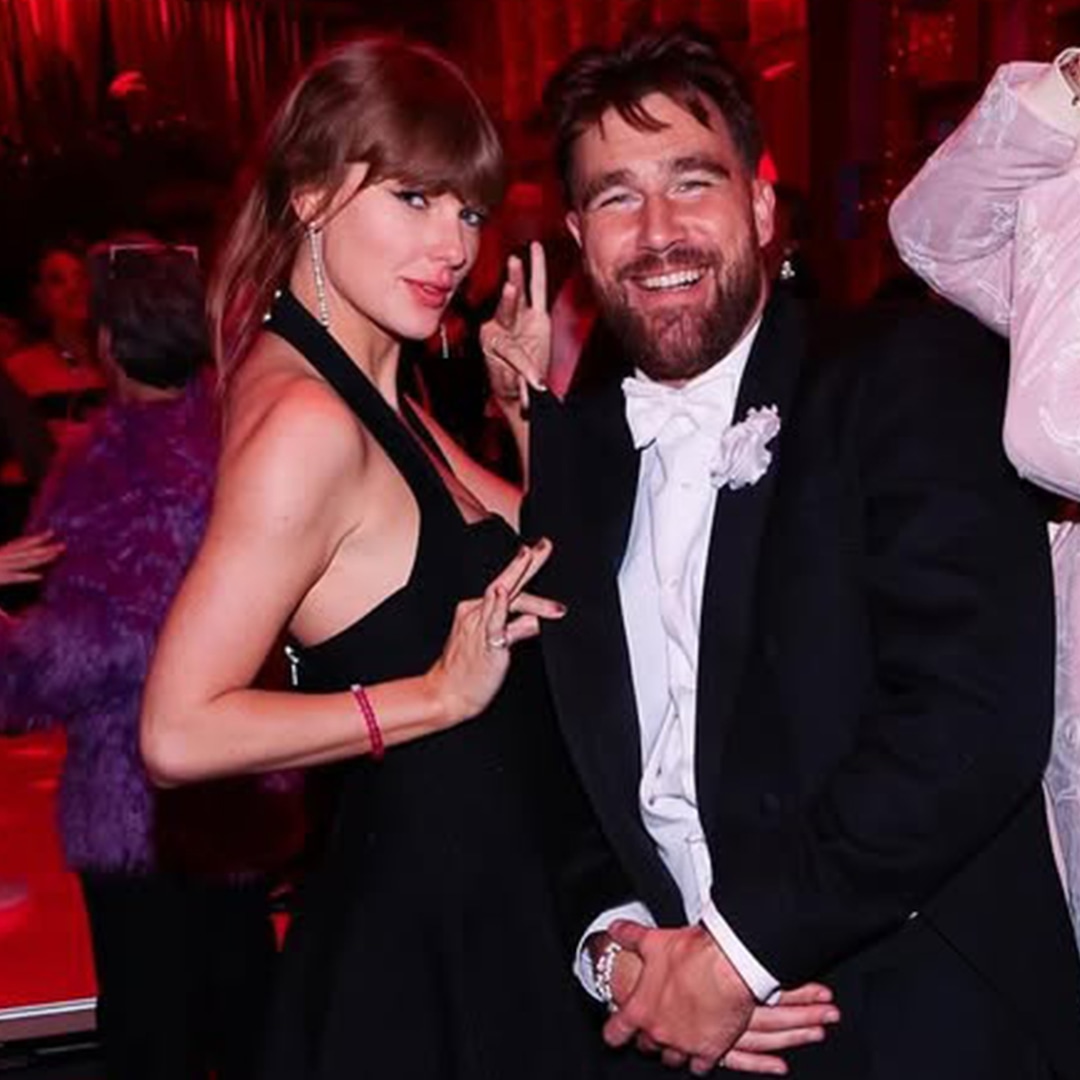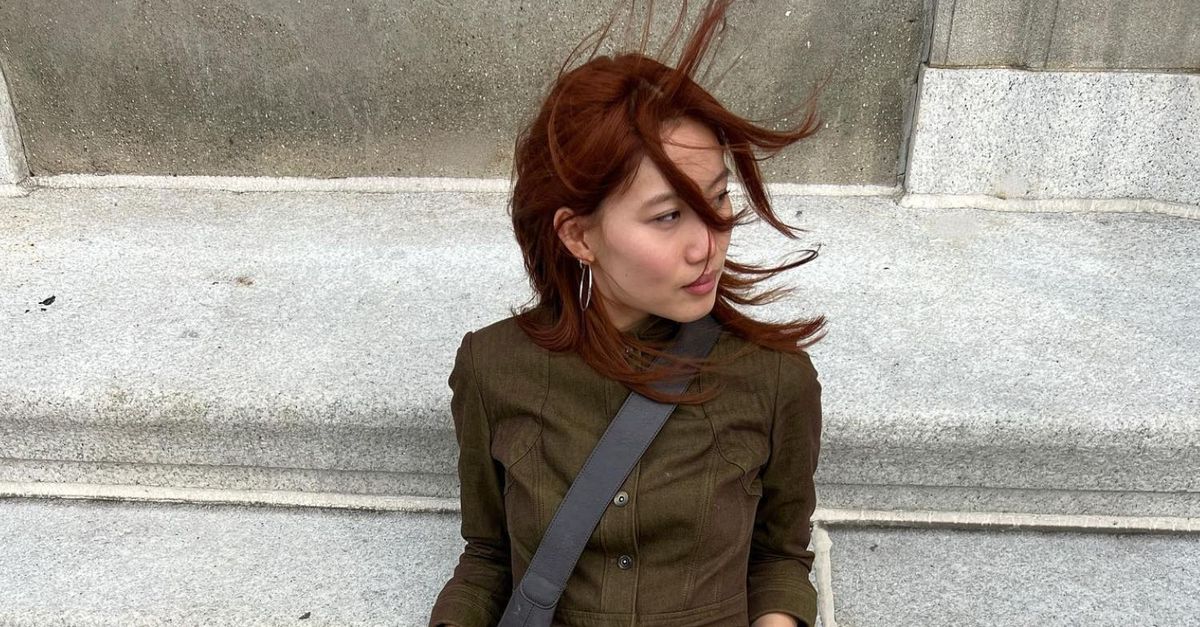Beyond the neon lights of Las Vegas, a city known for its dazzling allure and extravagant entertainment, lurks, The Haunted Museum, a labyrinth of the damned, where legendary ghost hunter, Zak Bagans has meticulously gathered a collection of cursed curiosities and artifacts of unspeakable horror—a Pandora’s box of the paranormal.
Within the historic Wengert Mansion, a dwelling that has witnessed its fair share of darkness since its construction in 1938, a paranormal playground comes to life. But be warned: this is no ordinary haunted house. This is an authentic paranormal experience, where the line between the living and the dead blurs into a terrifying tapestry.
We at Horror Facts have covered many of the cases and items now safely locked away within the confines of Bagans’ haunted walls, including the Dybbuk Box, an item so dangerous it has earned the moniker of being the world’s most haunted object. At the time we covered that story we asked our readers if they dared to venture within the museum to stand before this unholy box.
Now, it is my turn to embark on a harrowing journey. Taking up my challenge, I decided to head to the city of sin and visit this haunted museum for myself, casting aside all of my fears and venturing into the heart of this malevolent maze.
In this article, I recount my odyssey through Zak Bagans’ carnival of the cursed, sharing my encounters with the unexplained and the horrors that lie within.
Join me as I traverse the fine line between fascination and fear, exploring the chilling depths of The Haunted Museum and unearthing the secrets that lay dormant within its spine-chilling walls. Brace yourself, dear reader, for what awaits is beyond imagination—a testament as to why The Haunted Museum has rightly earned the title of being the #1 haunted destination in America.

Before you enter the museum, you have to sign away your sanity, for only a fool would willingly walk into a house of the damned, and lucky for you I willingly signed away my soul. Those who have entered the museum have reportedly become inflicted with fainting spells or sudden nosebleeds, and some have even required urgent medical care, while others have been reduced to tears, unable to comprehend the evil they have willingly walked into.
After you sign your life away, guests are ushered into line, where while you wait, monitors mounted to the wall foretell the horrors that await you inside.
Once it’s your turn, you and your fellow guests (groups of 12) are taken to the box office where you are given the option to purchase the general admission ticket ($54) or upgrade to an RIP pass ($86).
My first piece of advice to those who are planning to attend The Haunted Museum is to purchase the RIP pass. For only $32 more, this pass will give you exclusive access to rooms not open to the general public, including access to the basement of the museum, where it is said that dark rituals were once performed.
After purchasing your ticket, your group congregates in the box office lobby and it’s here that you are free to take as many photos as you like; after this, all cellphones and electronic devices must be turned off and stowed away for the remainder of the tour. Be warned: failure to adhere to this rule will see you automatically ejected from the tour.
After your initial host has you recite a prayer of protection, you are then brought outside where you meet your first tour guide. Throughout the two-hour tour, you will have numerous guides to weave you through all the rooms before the tour’s end.
We were then brought around to the other side of the museum by our guide. At this time, I made sure to be the first in line, as I wanted to be the first to enter.

As you enter the museum, you are brought into a parlor, and it’s in this room that I give you my second piece of advice: Make sure to head toward a fortune teller machine at the end of the parlor that bears a striking resemblance to a particular ghost hunter. Next, make sure you have a $1 bill at the ready in your pocket because your tour guide will ask a member of the group for a financial sacrifice. I was fortunate enough to have a couple of loose bills in my pocket and immediately pulled one out. I was then instructed to insert the bill into the machine.
After giving a foreboding warning, the fortune teller machine spat out a card and I was instructed to read it out loud to the group. As a reward, I got to keep the card, which made for a pretty cool souvenir (I have mine framed). So, if you want to take home one too, make sure to have a bill at the ready.
From here, I don’t want to give you an exact play-by-play of the whole tour, as I want to leave that part a mystery. Instead, I will highlight some of the things you can expect to see on your tour. Note that these are not in order, as I want their location in the museum to be a surprise to you should you decide to take the tour.
Peggy The Doll
Inside one of the rooms sits Peggy, one of the most haunted dolls in the world. Before you enter the room, you are given explicit instructions to never look Peggy in the eyes. Those who have foolishly ignored these warnings have allegedly suffered a range of negative effects, from violent nosebleeds to headaches and fainting spells. On one occasion, a guest even suffered a heart attack after ignoring the warning.
Knowing the power that Peggy possesses, the museum takes precautions to limit the direct exposure guests have with the doll, placing her behind glass and offering visitors the chance to see her without directly confronting the object.
Also in the room is a Spirit Box in the event that Peggy feels like communicating with you while you’re in the room. My tour guide stated that, on numerous occasions, Peggy has been known to throw out insults at guests, often swearing at them as they pass.
Once inside, this is not a room you linger in. As you enter, you’re directed to walk single file while you approach Peggy, but as you approach, make sure to politely say, “Hello,” to Peggy without stopping to look.
As you pass Peggy’s case, you must not let her ensnare you. While the urge to turn and look may be overwhelming, the consequences of this one action could be far beyond anything you could imagine.
As you turn the next corner to leave, make sure you don’t forget to state, “Goodbye, Peggy!” or risk her negative energy following you home.
When it came time to enter this room, this writer was the first guest to enter the room, walking directly behind my tour guide. As I approached, I made sure to follow instructions saying, “Hello, Peggy,” and not stopping to gaze into Peggy’s eyes. As I left, I said, “Goodbye, Peggy,” not willing to tempt fate.
While in the room, I didn’t overhear anything come out of the Spirit Box, but while standing in the hall after visiting the next room (one that I will not mention here, except to mention that it needs to be seen to be believed, and to share this warning: make sure you remain quiet in that room or you might wake the dead), one of the people in my tour claimed that they heard something coming from inside Peggy’s room. Just as a precaution, I made sure to say goodbye again.

Ed Gein’s Cauldron
Another room is dedicated to the infamous murderer and graverobber, Ed Gein. Ed Gein is the man who would serve as the basis for Norman Bates in Psycho, Buffalo Bill in Silence of the Lambs, and, most famously, as the inspiration behind Tobe Hooper’s chainsaw-wielding character Leatherface in The Texas Chainsaw Massacre. Gein’s horrific crimes have been covered here on Horror Facts.
In the center of this room, designed to look like a dilapidated barn, sits a cauldron encased in glass. The cauldron once belonged to Gein himself and is said to have been used by him to hold the remains of his victims. The cauldron is also said to have been used to collect the blood of Bernice Warden, the woman Gein had kidnapped and murdered.
Affixed to one of the walls in the room is a shovel that also once belonged to Gein. This shovel was presumably used by Gein when he would visit local cemeteries to dig up fresh corpses to remove their body parts and bring them back to his house to be made into furnishings or as part of his wardrobe.
Looking around the room, this exhibit seemed to fail to leave a mark on many of my fellow guests, perhaps due to their lack of knowledge on the infamous legacy of Gein. But for myself and for anyone else familiar with Gein, this room will be sure to capture your attention.
This was a room that I stayed in until the bitter end. As someone who has spent hours researching and writing about Gein and his acts of depravity, I had this surreal feeling while standing in this room and being so close to these items that Gein once used to dig up and defile countless bodies.
Dr. Death’s Van
As you enter this room, it feels like you’re stepping into an inconspicuous doctor’s office, but as you look around the room, you start to notice that the art on the wall is out of place in your typical doctor’s office.
Like in every other room, a monitor begins to play, this one narrating the story of Jack Kevorkian’s life and controversial legacy, as well as bringing to your attention the fact that the grotesque pieces of art adorning the walls of this make-shift office are all copies of art painted by none other than Kevorkian himself, the man who many would come to know as Dr. Death.
As the video concludes, your attention is drawn to a nondescript door in the room. One guest is directed to open the door to an adjoining room, a room that contains the actual 1968 Volkswagen van used by Kevorkian to conduct over 130 assisted suicides.
Finding myself standing in front of the door, I was the one tasked with opening it and the first one to step inside the room, parked in the center of which was the infamous Death Van.
In the back of the van, you can see an apparatus that Kevorkian would have used on his patients. They were given the opportunity to either self-administer a lethal injection or inhale carbon monoxide once they decided to end their life.
Peering inside the van, one can’t help but wonder how many souls met their end in that grim space, never again to emerge. How many went willingly to that grisly fate, believing the doctor’s claim of salvation? And how many did Kevorkian lure into that steel trap, their fate sealed once the doors slammed shut behind them? Do their spirits still remain, trapped in that chamber of death for eternity, peering out with vengeance at those who dare to disturb them?
The van stands as a monument to the human capacity for evil that lurks behind a veil of good intentions. Step inside and enter the dominion of Dr. Death, who once held life and death in his tainted hands within this place. Listen closely for the whispers of souls taken too soon, who yearn to share their stories of suffering and warn those who follow of the perils of placing faith in the mad and macabre musings of Dr. Death.
Visitors have reported feeling uneasy in this room, with some claiming to see a shadowy figure lurking near the vehicle – perhaps a spirit forever tethered to this instrument of death.

The Dennis Hof Bed
As you walk into another room, you’re taken aback by the sight of a bed sitting in the middle of the room. Before long, a video begins to play and you learn that the bed you’re staring at once belonged to Dennis Hof, a man who ran a notorious brothel called the Moonlite Bunny Ranch. While this may sound confusing, you quickly learn that the bed has a dark and sinister past.
On October 13th, 2015, former NBA player Lamar Odom nearly died on this very bed when he was found in an overdosed state. Fortunately for Odom, he managed to survive the ordeal, and would later claim that, while at the Bunny Ranch, he never took any drugs and that it was Dennis Hof who had forcefully given him drugs in an attempt to kill him.
Then, on April 23rd, 2017, a lady who worked for Hof took a photo of him at the ranch, but when she looked at the image, she saw what she believed to be a demon in the upper left corner of the photo.
Over the years, many of the employees at the Moonlite Bunny Ranch believed that there was an evil within the place, and the majority of those believed that this evil was somehow tied to this bed. It got to the point where everyone refused to touch or even go near the bed.
Despite everyone’s feelings towards the bed, Hof refused to throw it away, a mistake that would eventually lead to his death, as on October 16th, 2018, Hof would be found dead in this very bed.
As the video nears its end and the lights go dark, you’re directed to look at the mirrors around the room, as the one mirror is the very same one from which the woman captured the image of what she believed to be a demon.
Reportedly, one guest claimed to have seen the same hideous face in the mirror, leaving you to wonder if whatever was tied to this bed is still attached to it.
When the lights went out, I couldn’t help but become transfixed with the mirrors in the room. Despite the fact that I didn’t witness anything, nor did anyone in my group, I will admit there was this sense of tension in the room, as it felt like everyone was just a bit apprehensive that they might be the next unlucky soul to catch a glimpse of the same face.
The “Murderabilia Room”
Guests are welcomed to prison when they enter the “Murderabilia Room”, a room in the house that is filled with a collection of artifacts and items that once belonged to some of history’s most notorious murderers.
I don’t want to go into explicit detail about the artifacts contained within this room, as many are things that you need to see to believe. Briefly, though, some of the items contained within one part of the room are actual paintings by John Wayne Gacy.
There are also a pair of glasses and a ski mask worn by Ted Bundy during his kidnappings, as well as instruments used by Bundy that were found in his infamous Volkswagen Beetle.
The other half of the room contains numerous personal belongings of Charles Manson, including the gown he reportedly died in and his cremated remains.
There are also items that once belonged to Richard Ramirez and Dennis Radar.
This room is designed to confront visitors with the reality of these killers and their impact on society, a stark reminder that, like ghosts or demons, humans can be quite terrifying.
If you have ever been obsessed with true crime, then this might be a room you find yourself lingering in.

The Devil’s Rocking Chair
Behind a wall of glass in another chamber of the eerie museum sits a weathered wooden rocking chair that is sure to chill even the most skeptical of guests.
Used in the numerous exorcisms performed on David Glatzel by two priests and Ed and Lorraine Warren, the chair would allegedly move of its own accord, violently rocking back and forth. The chair was also said to defy gravity by levitating off the ground, and the Warrens even claim that it once vanished and reappeared before their eyes. But perhaps most chilling of all is the fact that witnesses present at the exorcisms claim to have seen an entity sitting in the chair.
It was, of course, during one of these exorcisms that the demon that was possessing David would transfer to Arne Cheyenne Johnson, whose story would go on to serve as inspiration for the film The Conjuring: The Devil Made Me Do It.
As you stand in this room, you have the opportunity to gaze at the throne of the beast, and those who purchase the RIP pass have the opportunity to walk around the protective wall and get an up close and personal glimpse of the chair.
For visitors to the museum, remember, as you stand before this rocking chair, you’re standing in front of a chair that once played host to the Devil himself.

The Demon House Staircase
You wouldn’t think that this museum could contain any more evil, but inside another room sits the original staircase from the infamous Indiana Demon House.
This unassuming staircase was ground zero for some of the most intense paranormal activity ever documented in the United States. As featured in Zak Bagans’ film Demon House, a mundane residential home in Gary, Indiana became a magnet for sinister supernatural forces.
Apparitions, unexplained noises, and even demonic possessions were reported by the terrified family living there. The events were so disturbing that the house eventually had to be demolished.
During the night, the Ammons family reported hearing the sound of loud footsteps coming from the basement, followed by the sound of someone or something climbing these old wooden stairs.
Later, during the investigation of the home, officers examined one particular photo of these stairs and they noticed what appeared to be the white image of a man’s face, along with a second green imperfection that resembled a female figure.
But what made this case so terrifying were the objects they found hidden in the loose dirt under the staircase, unexplained objects that may be linked to a necromancy ritual.
Unlike many of the other haunted objects, this one doesn’t sit behind warded glass or protective displays; the only thing separating you from evil is a half wall and a couple of feet.
While in the room, make sure you check out the display of all the items that were unearthed during the investigation and also take note of the fact that the very dirt that lines the display floor is the actual dirt taken from the Ammonses’ basement.
Next to the Dybbuk Box, this was the exhibit I was most excited to see, for the simple fact that this case is so well documented. Getting the opportunity to see the Demon House staircase up close, coupled with the fact that it’s not behind glass like many of the other haunted exhibits, was another surreal experience. There is this foreboding sense of almost wanting to risk reaching out to touch something so haunted.
The Dybbuk Box
Contained in this particular room is the world’s most haunted object and the real reason behind my visit to the museum – The Dybbuk Box.
Years ago, I wrote an article on the Dybbuk Box, where I asked our readers if they were brave enough to visit the museum and stand in the presence of this unholy box. It was a challenge that I myself felt I had to accept.
Before you enter the first room, guests are given the opportunity to forgo this exhibit, for fear that whatever evil is contained within the box might attach itself to them. Those who choose to proceed are ushered into a small room, where another monitor begins to tell you the unnatural history of the box and the tragedies that have befallen everyone who has had the misfortune of coming in contact with it.
Once the video is finished playing, guests are once again given the opportunity to exit the room, but for those who wish to stay, a hidden door opens into another chamber, one that contains the world’s most haunted object.
Once the door opened, I was the first of my group to dash through the new opening, where I finally laid my eyes on the box. We were directed to encircle the box, which now appeared different from the pictures from when I first published my article, for another protective barrier made of acacia wood and glass has been constructed around the box. Jewish inscriptions etched into this new protective barrier are meant to keep the evil contained.
I found myself transfixed by the box, unable to take my eyes off of it, examining every detail, and as the other guests exited the room, I made sure to see it from every angle, especially the front.
Also contained within this room was the smaller Dybbuk Box that Bagans had opened during his Ghost Adventures: Quarantine miniseries.
On one wall, there was a table where guests could leave an offering as a means of appeasing the evil and ensuring that they were not the ones it chose to attach itself to.
This is one room that I was the first to enter and the last to leave, and I only left when my guide informed me that my time was up and that we had to continue with our tour. But before I left, I made sure to leave an offering of money in the bowl.
I made good on my challenge to stand before the presence of true evil. Now, I once again ask you, do you dare follow suit?

More to Explore
Those are just some of the highlights you can expect to see on the tour. Note that there are many other rooms in the museum to be explored, including one with recovered artifacts from the infamous Splendour yacht, the very boat that Natalie Wood mysteriously drowned on.
There is a room filled with celebrity artifacts, including the chair that was sitting next to Michael Jackson’s death bed, and the only known piece of “Little Bastard” the cursed car that took the life of James Dean.
Other celebrity artifacts include a carpet that once belonged to Al Capone and a mirror owned by Bela Lugosi – a mirror that the legendary Dracula actor still reportedly haunts to this day. Along with Lugosi’s spirit, the mirror is also said to contain the spirit of a malevolent force, one that has been known to lash out and attack guests who dare to gaze into it.
Another room is dedicated solely to the infamous crimes of serial killer Robert Berdella, but this room is only available to those who purchased an RIP pass.
Yet another room contains equipment that once communicated with the dead, and there is also a room that contains actual human remains.
In addition, Peggy is not the only haunted doll that resides in the museum; there is another haunted doll that calls the museum home, but the room this doll is in is only open to RIP pass holders.
Don’t forget the previously mentioned basement of the museum. RIP pass holders have the opportunity to head downstairs to where Satanic rituals were once performed, while a spirit box loudly pulsates in the distance. Maybe you’ll be unlucky enough to catch some of the ghostly screams of those sacrificed in the basement.
Oh, and I hope you’re not scared of clowns.

Having survived the experience, I am left with a profound realization – this place is a true horror lover’s dream. From the notorious Dybbuk Box to the Devil’s Rocking Chair to the myriad of true crime artifacts, every corner of The Haunted Museum was designed to captivate the souls of lovers of the macabre.
Throughout the entire two-hour tour, I found myself enthralled by what I was seeing; it was an experience unlike any other I have had before. The Haunted Museum stands as a testament to the unyielding fascination we have with the darker side of humanity and the supernatural.
It’s a one-of-a-kind experience that beckons to be seen, felt, and believed by anyone with a heart that beats a little faster at the whisper of the word, “horror.”
Since my visit, I have learned that the museum has added new exhibits, ensuring that the horror within its walls is always fresh, and evolving. It is a testament to Zak Bagans’ unwavering dedication to providing an unparalleled experience for those who dare to venture into the realm of the unknown.
If your soul is stirred by the sinister, and if tales of terror are what you seek, then I strongly recommend that you visit The Haunted Museum.


























































![Mason Ramsey – Twang [Official Music Video] Mason Ramsey – Twang [Official Music Video]](https://i.ytimg.com/vi/xwe8F_AhLY0/maxresdefault.jpg)






















